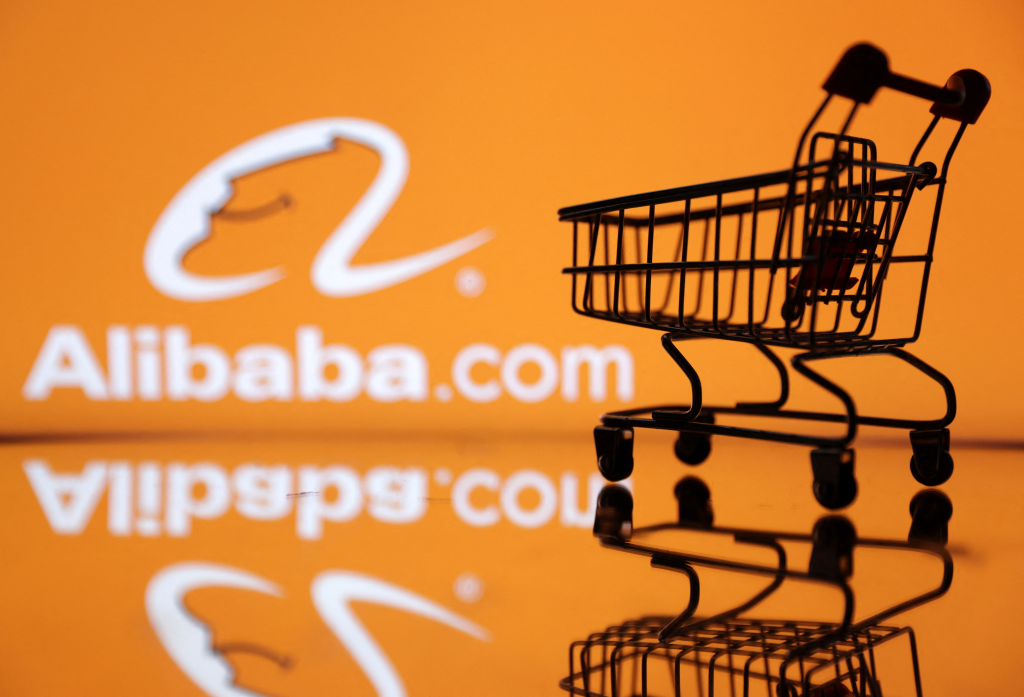Amid the whirlwind of recent news, it may feel overwhelming to put any new money to work in foreign tech stocks, as uncertainty seems certain for the foreseeable future. Yet recent events show why Alibaba Group 9988 -0.10% may be able to shine.
The White House’s decision to impose 25% tariffs on North American allies may make the 10% levy on Chinese goods seem like small potatoes, but the ripple effect of a sudden trade war is tanking markets Monday, even as 11 th hour negotiations like those with Mexico change the calculus. Still, with the administration saying it will prioritize tariffs over the stock market, investors might feel reluctant to invest in a company like Alibaba, which would appear to be just the kind of company that could find itself in Washington’s crosshairs.
That’s a fair point, but tariffs aren’t the only thing roiling the market. Last week Chinese AI Assistant DeepSeek sent shock waves through stocks after a paper was published that indicated it used fewer chips, and thus cost less to produce, than American AI models. The implication that effective AI models can be made much more cheaply upended the idea of America’s supremacy in tech and the future of tech investment.
There are a lot of reasons to be skeptical about the DeepSeek hype: Expecting full-transparency from China is a fool’s errand and there have also been very legitimate rebuttals to the model’s alleged $5 million price tag. However it isn’t inconceivable that Chinese tech is making key strides in AI.
“While DeepSeek’s innovation looks impressive, Alibaba’s Qwen. Tencent’s Hunyuan, and even Baidu BIDU +5.89% all introduced the mixture-of-experts (MoE) approach during respective cloud summits in 2024,” writes Citi analyst Alicia Yap. “We believe investors have been underappreciating the AI efforts of China internet companies.”
To wit, AliCloud released its latest Qwen2.5-Max on Jan. 29, a day after the DeepSeek market panic, an open-source MoE model that has been pretrained on more 20 trillion tokens. Yap argues that Chinese AI models could lead to an inflection point in AI adoption—cheaper AI can level the playing field for smaller operators in many industries —and she ranks Alibaba first, ahead of Tencent and Baidu among companies in her coverage with AI development exposure.
Technicals also appear to be on Alibaba’s side. While the stock may need some time to break out, with the shares up nearly 19% this month, there is solid support that means the stock is unlikely to test its lows from late 2024, notes The Institutional View’s Andrew Addison.
“Volume flows are powerful,” he writes. “Even though Alibaba has yet to exceed its prior recovery high from February 2023, volume flows surged to new highs.”
This leads him to recommend investors buy on any pullbacks around $95, particularly as Alibaba’s strength vs the S&P 500 SPX +0.72% has only bottomed recently, an action that “presents an opportunity to begin establishing positions for what could provide bullish surprises later this year.”
Bear Traps Report made a similar point recently, arguing that after fourth-quarter declines we’re at or near “the point of maximum seller exhaustion,” which has previously been a bullish signal for other stocks. Greater appreciation for Alibaba’s tech and AI is just icing on the cake.
At a recent $100, Alibaba is up slightly since Barron’s wrote about it in the fall: We argued that it was too cheap to ignore, in part due to its AI efforts. Certainly, it took a long time break even, but trading at just over 10 times forward earnings it’s still inexpensive compared with its own history and many other tech stocks.
Moreover, the landscape for AI has changed recently, meaning Alibaba’s models could start to garner more investor interest and respect. An attractive stock chart and greater tech prowess are powerful are catalysts that are hard to ignore—even if they don’t turn stocks on a dime the way tariff headlines can.



